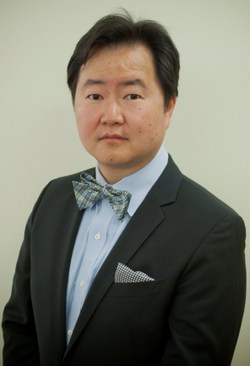
Breast cancer patients who undergo a mastectomy followed by reconstruction using their own tissue have a low rate of early post-operative complications. However, their risk varies by the type of procedure they undergo, according to new Northwestern Medicine® research.
Results from the large-scale, multicenter study appearing in the February issue of the Journal of the American College of Surgeons indicate that a technique known as the free flap – where tissue, along with its blood supply, is moved from one site of the body to another – appears to have a higher rate of 30-day postoperative complications compared with pedicle flap techniques, which involve a mass of tissue still partially connected to the donor site so that it retains its own blood supply.
Although tissue expansion with an implant is the most common type of breast reconstruction performed, many women prefer the more natural results of using their own, or “autologous,” tissue. However, it has been unclear which of the many autologous reconstructive techniques renders the best result with the fewest postoperative complications.
“This study is one of the largest to report short-term outcomes of autologous breast reconstruction and it allows breast cancer patients and their health care providers to get more accurate information about outcomes,” said principal investigator John Kim, MD, associate professor in plastic surgery and dermatology. “We can now inform women of some of the risk factors, calculated using nationwide data from multiple independent sources. The good news is that serious complications are rare and these procedures are generally safe.”
The scientists analyzed surgical outcomes data from nearly 3,300 women who had autologous breast reconstruction. Next, they used the data to track complications within the first month after reconstructive procedures performed at more than 240 medical centers across the United States from 2006 to 2010.
“The study was very much a collaborative effort and part of an ongoing series of integrated research we are doing on breast cancer reconstruction at Northwestern,” Kim said. More than a half-dozen Feinberg scientists are co-authors on the publication.
For the study, investigators included women who had one of three common flap procedures. They found that only 12.5 percent result in short-term complications despite the fact that flap breast reconstruction is a complex surgical technique.
“There are minor and treatable flap complications that can occur, such as wound infection, but serious complications, such as heart attack, were rare,” said Kim, a reconstructive surgeon at Northwestern Memorial Hospital. “Our study dispels the notion that autologous breast reconstruction has major medical complications.”
Besides flap type, other factors that the researchers found raised the risk of complications after flap breast reconstruction included a recent prior operation, obesity, and delayed reconstruction. Similar to results of other studies, women who smoked had a higher risk – nearly 1.7 times greater odds – of getting an infection at the surgical site than nonsmokers did, which Kim said underscores the importance of not smoking before the operation.






